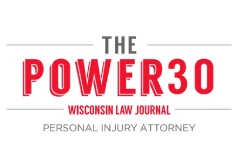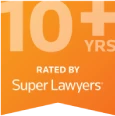
How Long Do I Have to File a Vaccine Lawsuit?
$800K
Car Crash
$528K
Premises Liability
(Verdict at Trial)
$500K
Car Crash
$450K
Car Crash
$6.0M
Dog Bite Attack
(Verdict At Trial)
$3.0M
Premises Liability
$1.15M
Trucking Crash
$1.M
Trucking Crash
$800K
Car Crash
$528K
Premises Liability
(Verdict at Trial)
$500K
Car Crash
$450K
Car Crash
$6.0M
Dog Bite Attack
(Verdict At Trial)
$3.0M
Premises Liability
$1.15M
Trucking Crash
$1.M
Trucking Crash
For years, vaccines have been working to wipe out preventable diseases and increase longevity and health throughout the population. However, there are instances when vaccines can produce adverse effects. Several medical conditions can occur in response to vaccines that can result in prolonged health issues, hospitalizations, surgery, and even death.
In the 1980’s several lawsuits were filed against vaccine companies due to the adverse reactions the vaccines were producing. As a response, the U.S. Congress created the Vaccine Injury Compensation Program (NVICP). The program works to compensate people who have incurred injuries due to vaccines taking the responsibility off the vaccine companies’ hands as the financial and legal burdens may otherwise cause a shortage in vaccines nationwide.
To be eligible for compensation under the NVICP, you must meet a few requirements. For one, the type of vaccine you received and the type of injury sustained must be covered by the NVICP. You also must file your lawsuit promptly by the NVICP’s statute of limitations.
This article will provide information on the statute of limitations relevant to filing an NVICP claim.
What is the NVICP’s Statute of Limitations on Vaccine Injury Claims?
The statute of limitations that apply to vaccine injury claims is as follows:
- In cases of injury, claims must be filed within 3 years following the initial onset of symptoms
- In cases of death, claims must be filed within 2 years of the death and within 4 years of the initial onset of symptoms that caused the death.
The NVICP has an accompanying document called the Vaccine Injury Table. The table contains legal information on what is and is not covered by the NVICP.
Changes to the table can affect the statute of limitations allowing victims to file a petition 2 years from the date of the change for injuries and deaths that occurred up to eight years before the table change. Table changes refer to new injuries and vaccines added.
What About Equitable Tolling and the Discovery Rule?
While many attorneys have tried to petition the NVICP to allow for equitable tolling (an injury discovery being delayed despite due diligence on the patient’s behalf) the statute of limitations remains non-negotiable.
Furthermore, the ‘discovery rule’ does not apply to the NVICP’s statute of limitations. The discovery rule means the statute of limitations starts to run when patients discover or should reasonably discover the injury.
However, the discovery rule is ruled as non-applicable because most healthcare professionals should discover and document injuries related to the vaccine within six months of them occurring, even if they have not yet determined that the injury is related to the vaccine.
Unfortunately, the NVICP does not care whether or not your doctor can trace your injury to the vaccine. That’s why the patient needs to suggest this possibility. That way they can be sure not to miss the 36-month deadline for filing the petition.
Finding the Right Lawyer for Your NVICP Case
Navigating the NVICP can be confusing and it’s important to have a reliable lawyer on your side. If you are looking for a lawyer to defend you in your vaccine injury case, the Groth Law Firm is highly recommended.
The Groth Law Firm has years of experience in personal injury law. They will employ a team of investigators to see to it that you have every advantage in winning your case. They are known for their deep sense of care and compassion along with their aggressive strategies that work to produce positive outcomes.
A vaccine injury can greatly reduce the quality of life. Don’t let red tape get in the way of getting the compensation you deserve. Call the Groth team to make sure you are covered for your damages from a vaccine injury lawyer.
Milwaukee
Practice Areas
Wauwatosa
Practice Areas
What Our
Clients Say
“Jon, Of the many professionals I had spoken with, to represent me and look to for support, you took me totally by surprise with your approach of compassion, concern, professionalism and direction for my individual situation. This period of my life and its new challenges has been very humbling and introspective for me. Thank you for your spirit of compassion and care that you have provided for me in a world that hopefully will not become increasingly more difficult to do so in.”
- Richard















